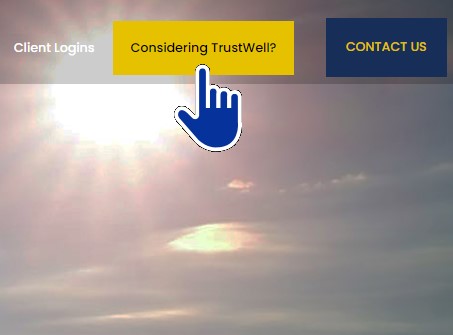
Quarterly Market Review: January 2024
January 2, 2024
Considering TrustWell?
March 1, 2024By Chris Daunhauer
Benjamin Franklin told a friend in a letter that there’s nothing really certain in life except “death and taxes.” Franklin’s famous claim has held up pretty well in the 235 years since he made it.
I’ve often thought having to pay income taxes is “a wonderful problem to have” and a sign of God’s provision in my life. I hope my wife and I pay lots of income taxes next year, and every year thereafter for the rest of our lives!
That said, I’m always looking for legal and simple ways to reduce the percent of our income that we pay in taxes, and that work is often rewarded. Lots of taxpayers (at all income levels) pay more than they otherwise would if they kept better records or were more aware of legal options for reducing what they must pay on their income and profits. Learning how one’s taxable income is calculated and using that newfound knowledge to make changes during the following year often yields great returns!
But there are some payments to the IRS, however, that I hate paying – penalties. These I consider optional and unnecessary. Here’s three of the most common:
Failure to File Penalty
This first one is the easiest to avoid. It’s punishment for not having your return (or your request for an extension) en route to the IRS by April 15. It’s also the punishment for not filing a return at all when your annual income is high enough to require one. The longer a required return remains unfiled, the higher the penalty that will be assessed.
(Note that filing an extension request just gets you an additional 6 months to prepare and file your return; it does not get you more time to pay what you owe.)
Your brother-in-law may argue that income taxes are technically illegal under his interpretation of the Constitution (especially the 16th amendment), but there’s a convincingly long history of court cases lost and heavy fines levied on tax protesters who persisted in that view. Income taxes are a fact of life, and not the worst thing I can imagine. Do what you can to minimize them, but avoid the tax protestor corners of the internet—file an accurate tax return when and as required, pay what you owe, and then spend your energy on better things.
Failure to Pay Penalty
This second one is punishment for not paying income taxes or self-employment taxes by April 15. The penalty amount is a percentage of the unpaid amount times the number of months the amount remains unpaid. As before, the longer you wait to pay what you should have, the higher the penalty that will be assessed.
Underpayment Penalty
This third penalty is fairly common for 1099 contractors and other self-employed taxpayers, those with rental property or significant brokerage account income, and those whose income fluctuates significantly from year to year. I’ve paid this one several times myself, I admit.
Our federal tax system is a pay-as-you-go arrangement. Federal law requires that taxpayers pay cash to the US Treasury at regular intervals over the course of a year (as income is earned or received) vs. waiting and making one big payment at the end of the year. When the IRS receives a tax return filed that has a large check to the US Treasury attached, that return gets extra attention. Auditors assume that taxpayers who have to pay a large amount in with their returns (and without good reason) are people who did not pay “as they went.”
Independent contractors and small business owners often fall behind in their quarterly payments to the IRS. “Are you current with the IRS? And if not, what can we do to help?” are questions TrustWell’s advisors often ask our self-employed clients. But retirees and anyone with significant investment or rental income can sometimes be caught out by the underpayment rules, too. Not having sufficient taxes deducted from a monthly pension payment, or a monthly social security benefit, or from a distribution received from an IRA or company retirement plan can easily result an underpayment penalty.
Thankfully, the IRS does not expect every taxpayer to have paid in the exact right amount over the course of a year. And the IRS accepts that people often do not know what their taxable income will be until late in the year.
So, tax law gives two “good faith” ways taxpayers can avoid an underpayment penalty:
- If the total that the taxpayer paid in over the course of the year in withholdings and/or quarterly estimated payments turns out to be within $1,000 of the eventual amount of tax due for that same year, the IRS will not charge an underpayment penalty. That’s close enough, per the IRS – like horseshoes and hand grenades.
- Alternatively, if the total that the taxpayer paid in during the year is at least 90% of the eventual amount of tax due, or at least 100% of his or her tax bill the previous year, then the IRS will not assess an underpayment penalty.
(Note that for this second exception, high income earners must pay 110% of the previous year’s tax bill to avoid the underpayment penalty.)
If you find yourself being assessed a penalty, or receive a notice from the IRS, take it seriously, but don’t panic. Check your records and do some research. For larger penalties, consider getting professional help before paying the penalty or responding to the notice.
The IRS can choose to forego collecting penalties from taxpayers who can give a reasonable explanation for their errors. This is especially true for taxpayers who are first time offenders. IRS Notice 746 has info on penalty rates and how to request relief from a penalty you think is not warranted.




